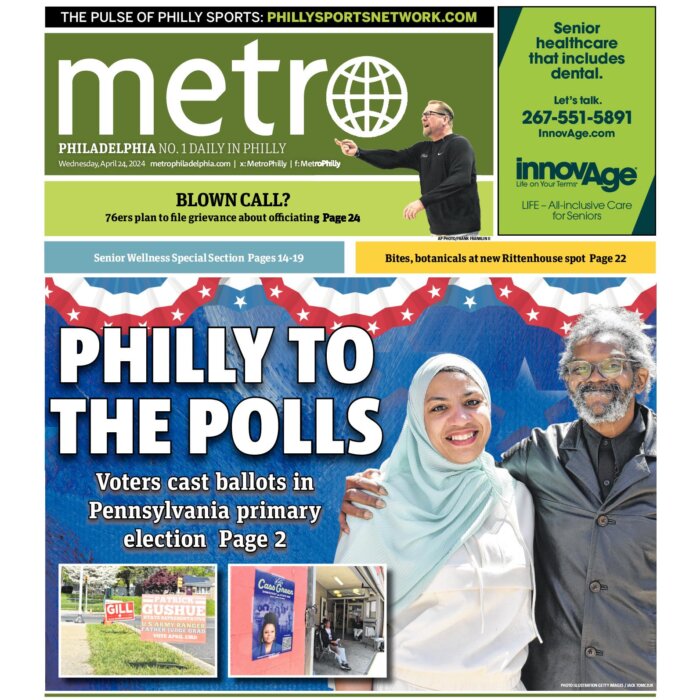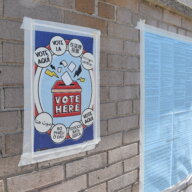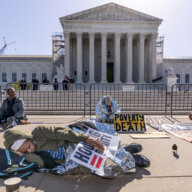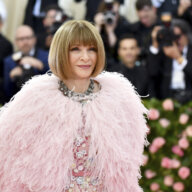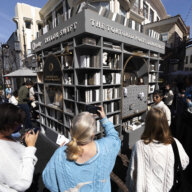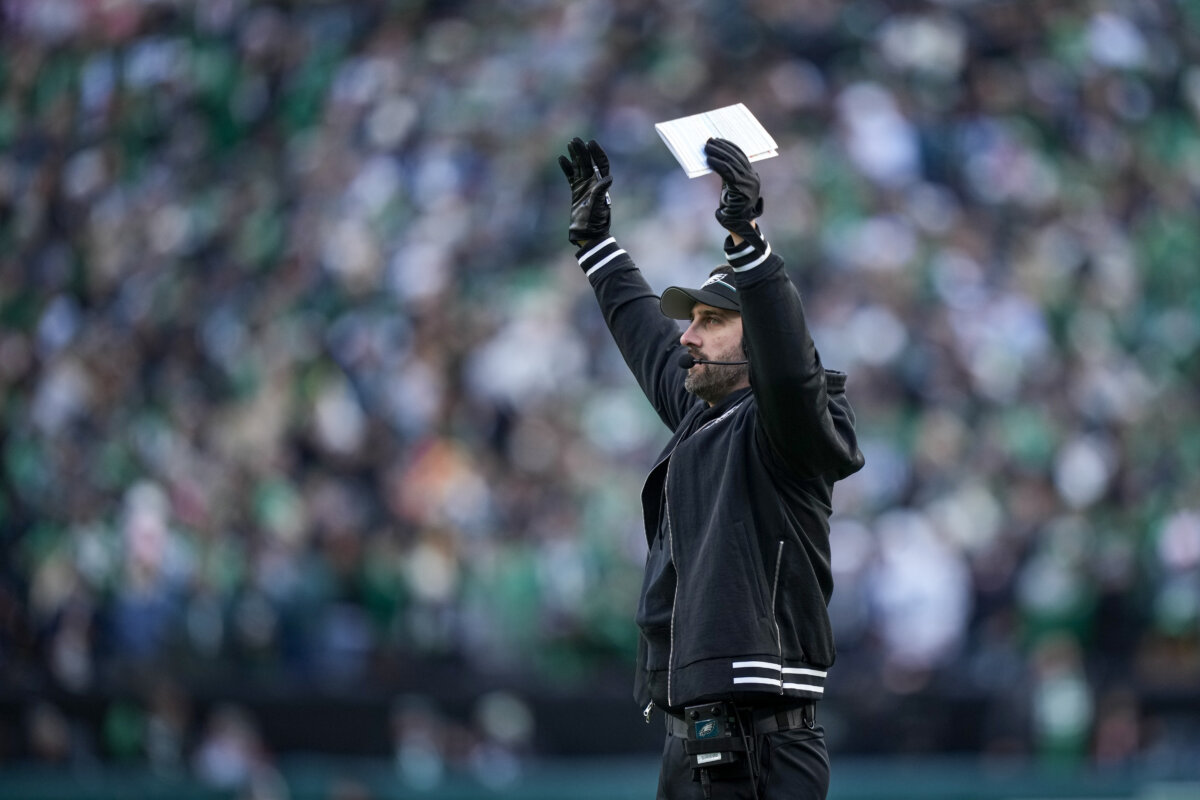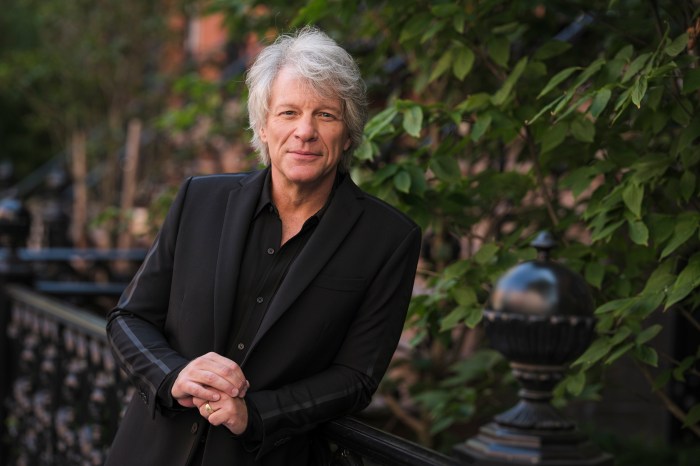The adage “all publicity is good publicity” has proven true for one of Philadelphia’s top companies, Urban Outfitters, whose president Richard Hayne recently received the coveted Edward Powell Award as an example of excellence in the city’s business community.
But in contrast to civic excellence, Hayne’s brand drew the ire of two ethnic groups Tuesday, with Saint Patrick’s Day merchandise causing the Ancient Order of Hibernians to threaten a boycott and the use of the word “Navajo” in product descriptions causing the tribe’s government to file a trademark infringement lawsuit. The offending Irish items include a trucker hat with a stick figure on all fours vomiting shamrocks that reads “Irish Yoga,” and T-shirts emblazoned with shamrocks accompanied by logos such as “Irish I Were Drunk.”
“We need to get this defamation stopped immediately. Please call, e-mail or demonstrate in front of their stores,” president Seamus Boyle wrote on the Hibernians’ website.
The Navajo Nation, which holds more than 10 trademarks on products such as clothing and online sales, sent Urban Outfitters a cease and desist order in June for the use of the word in the company’s “Navajo” collection. Urban scrubbed from their website all references to the term, which it had been using to describe everything from panties to hip flasks. But they continued to use it in their catalog, retail stores and subsidiary brand Free People, the lawsuit alleges. Free People’s website was selling several pieces of vintage jewelry labeled “Navajo” as of yesterday.
Urban Outfitters has continued its march from the small company founded with a few thousand dollars in the 1970s to an empire worth over $700 million.
When big fish eat little fish
During the last several years, Urban Outfitters has faced numerous complaints of plagiarism from independent artists, and more recently, objections to culturally insensitive graphics from certain ethnic groups.
Online marketplaces like buyer-seller website Etsy have become particularly vulnerable to creative plagiarism.
Abby Kessler, co-owner of Smak Parlour four blocks south of Lost + Found, said, “All the jewelry designers I work with say they’re afraid to put their stuff on Etsy, because they don’t want anyone to copy it.”
Though local fashion entrepreneurs and artists are well aware of the stigma, some remain optimistic. “We never have a problem finding great artists in such a creative city,” said Kessler, who not only co-owns but also co-designs the products in her boutique. “Independent artists make everything themselves, and that’s not something Urban Outfitters can ever do.”
Apologetic history
This is not the first time Urban Outfitters has been involved in a controversy
alleging discrimination:
They discontinued a T-shirt reading “Everyone Loves a Jewish Girl,” surrounded by dollar signs in 2003 after pressure from the Anti-Defamation League.
They stopped manufacturing glittery handgun-shaped Christmas tree ornaments in 2007 following the fatal shooting of Philadelphia police officer Chuck Cassidy.
The company issued an apology in 2007 for marketing keffiyehs as “antiwar” scarves and did the same in 2008 after discontinuing a T-shirt with a Palestinian youth holding a machine gun over the word “Victimized.”
In 2010, Urban Outfitters pulled a shirt reading “Eat Less” from their website after an outcry from eating disorder advocates.

